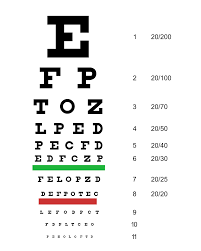 A piece in today’s New York Times caught my eye.
A piece in today’s New York Times caught my eye.
Am I Going Blind? was written by columnist Frank Bruni, who describes waking up one morning late in 2017 unable to see clearly. “The affliction that stole my vision, or at least a big chunk of it, did so as I slept,” he writes. “I went to bed seeing the world one way. I woke up seeing it another.”
Bruti’s artful account of living with his deteriorating vision would make anyone feel empathy for him. For me, I was struck by some uncanny similarities to my own experience decades ago.
His diagnosis (nonarteritic anterior ischemic optic neuropathy) is quite different from the diabetic retinopathy that stole my vision, and at age 53, he is precisely twice as old as I was when my eyesight began to diminish. Those two facts aside, his other accounts of early vision loss are so similar to my experience that it’s downright uncanny. Let’s start with this excerpt, where he describes his first symptoms:
On that first morning, several hours passed before I accepted that something was seriously wrong. I figured that I was just groggier than usual. Maybe I needed more coffee.
As I sat at my computer transcribing a long interview that I’d just done, I repeatedly took off my eyeglasses to clean them, convinced that the smudginess of my vision was some streakiness on the lenses. When I finally gave up on that, I rinsed my eyes with water — to no avail. It was as if someone had deposited a blob of petroleum jelly in my right eye and nothing would dislodge it.
As for me, I first noticed spots in my eyesight on our honeymoon in Scotland whend Mike had to stop the car to let the sheep cross the road. Here from my memoir Long Time, No See:
Maybe sheep in Scotland have spots on them. Or maybe my contacts were dirty. I took out my contacts, gave them a quick wipe, and put them back in. Still the spots. I rubbed and rubbed and rubbed my eye. Still the spots. I looked up at the blue sky and saw it suddenly go cloudy. I closed one eye, then the other. I could see fine out of the right eye, but in the left eye the spots were spreading into spider webs.
Bruni mentions not just one, not just two, but yes, three injections directly into his eyes. I, too, endured three such injections. He is involved in a research study and may have been given a placebo. Same with me. He was told only 20% of people with his disease lose their eyesight completely. Those were my odds, too, and for nine months after my initial diagnosis I woke up just the way Bruni describes in his article: “It was the same every morning: a stab of suspense, then a gale-force sigh of relief. I could still see.”
And then, one day, I couldn’t.
But that happened to me 30+ years ago. Science, technology, and research are all on Bruni’s side, and I hope–and expect–his remaining eyesight will be saved. And of course I approve of his coping method in the meantime: writing a personal essay about it. He includes some strong reporting in addition to his personal descriptions,too, and I hope you’ll give the piece a read.
I thought of you instantly, Beth. The comments in the NYTreveal how widely it spoke to people of all ages about how to proceed the day after the thunderbolt falls from the sky.
You know, it’s funny. I have no recollection of what we did the day after we got the news. I think maybe that was the day Mike started looking in the Yellow Pages under the word “blind” to see what resources there were…?
Beth, thank you for sharing Frank Bruni’s article. It also spoke to me, as I read the article I flashbacked on the 20 years of my progressive blindness caused by Auto Immune Retinopathy; my fears and anxieties have pushed me to face challenges that I never would have imagined.
Twenty years of progressive blindness? That is too cruel. It may be difficult for others to imagine, but the news that my surgeries didn’t work and I’d be blind the rest of my life came somewhat as a relief. No longer would I wake up afraid to open my eyes. No more wondering and worrying how much I’d be able to see that day. Don’t get me wrong. The news was bad news, but at least I knew what to do next: learn new skills.
And that’s an ongoing project. I’m still learning new skills!
I hope you recommend your book to Frank Bruni. He could learn a lot
from you! It occurs to me that you are curious enough to learn a lot from Mr. Bruni!
— Anne
You know, now that Writing Out Loud is available in an audio format, maybe I’ll send it to him that way. Great idea, Anne!
The passages on losing your eyesight are some of the most powerful in your book. They still stay with me and make me hiccup a little inside when I think of them.
Confession: It’s been ages since I myself have read those parts of Long Time, No See and reading those parts now gave me a bit of a hiccup, too.
Saw that piece and of course thought of you and your memoir. I am glad you and Frank are both still writing, even with vision issues.
Wow. What a compliment to have you put Frank and me in the same category. Thanks, Gretchen
Leave a Response